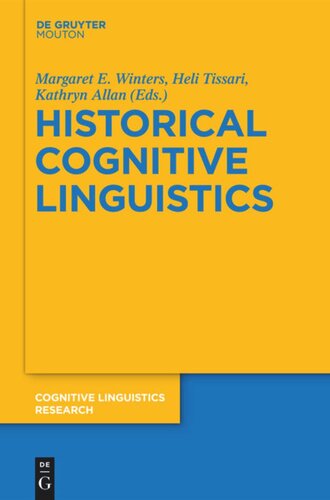

Most ebook files are in PDF format, so you can easily read them using various software such as Foxit Reader or directly on the Google Chrome browser.
Some ebook files are released by publishers in other formats such as .awz, .mobi, .epub, .fb2, etc. You may need to install specific software to read these formats on mobile/PC, such as Calibre.
Please read the tutorial at this link: https://ebookbell.com/faq
We offer FREE conversion to the popular formats you request; however, this may take some time. Therefore, right after payment, please email us, and we will try to provide the service as quickly as possible.
For some exceptional file formats or broken links (if any), please refrain from opening any disputes. Instead, email us first, and we will try to assist within a maximum of 6 hours.
EbookBell Team

0.0
0 reviewsThe volume explores the ways in which language change is studied within the framework of Cognitive Linguistics, a semantics-based theory of language production and perception. The eleven chapters explore two kinds of changes: firstly, those which involve mental prototypes or 'best instances' of particular concepts and extensions of these prototypes, and secondly, those which relate to conceptual networks, for example via metaphor or metonymy. More specifically, the papers address syntactic and lexical change, as well as the evolution of language and changes in the expression - usually metaphoric - of emotions.
In presenting a wide range of current work of this kind, the volume demonstrates the value of cross-fertilization between historical and cognitive linguistics, and is intended to open the way for further related research. The included papers are of particular relevance to those working in metaphor theory and syntactic / semantic change within Cognitive Linguistics, but will also be of interest to other historical linguists and those studying cognitive semantics and metaphor from a synchronic viewpoint.